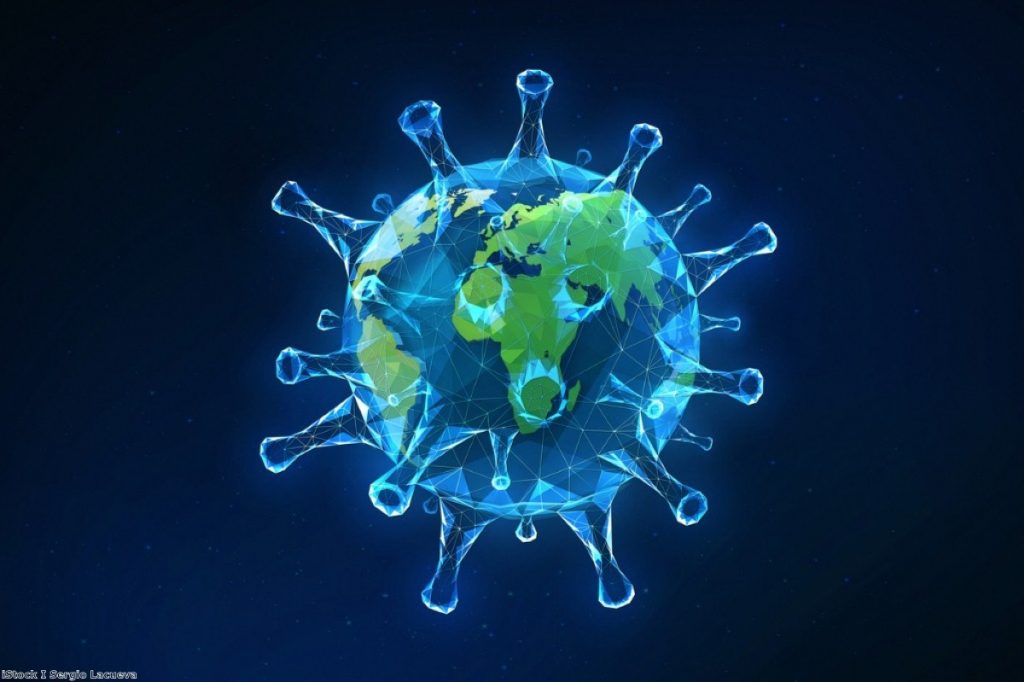By Navendu Mishra
Governments from across the world are meeting today to discuss a landmark proposal from India and South Africa that could help turn the tide against covid. Medical tools such as respirators, ventilators, testing kits, vaccines and treatments are all vital in the fight and yet access to these tools is already being hampered by intellectual property rights. Patents restrict supply to originator companies, preventing others from making or selling the same product during the patent period. In a pandemic, this will lead to scarcity at a time when global demand for medical tools is colossal.
The proposal to suspend patents on covid heath tools couldn’t have come sooner. Here in the UK, a potential covid treatment has been rationed due to inadequate supply. It has been priced at £1,802 for a five-day course in most countries by drug maker Gilead. This is a prohibitively high price for many health systems, even though the treatment course can be manufactured for as little as £6.93.
The situation will be even worse when it comes to vaccines. Early results that show Pfizer/BionTech and Moderna have found an effective vaccine are very encouraging. But they are only going to make a difference if we can secure global access to them. If these vaccines are too expensive for health systems in low and middle-income countries, or if they are rationed because the company and their contracted manufacturers can’t make enough, then their value is limited.


For Pfizer and BioNTech, they can only produce 50 million doses for 2020 and 1.3bn for 2021. Because this is a two-dose vaccine, that means only 25 million can receive it this year and just 650 million people next year. This is nowhere near enough to meet global demand, especially when most of these doses have already been hoarded by rich countries through advanced purchase deals, leaving nothing for lower income countries. Without Pfizer sharing their intellectual property and knowledge on how to produce the vaccine, this will be a vaccine just for the rich.
The major underlying cause of all these issues is the system we have for developing medicines, a system which too often places profiteering before patient need, and where exclusive intellectual property rights lead to market monopolies which artificially restrict supply and drive up prices.
Scaling-up manufacturing of covid vaccines, as well as diagnostics and therapies, requires pharmaceutical companies to give up their monopolies, share their intellectual property rights and spread the knowledge of how these tools can be produced. This will speed up research and development and maximise manufacturing capacity while also making products more affordable by enabling generic competition to help drive down prices.
It is against this backdrop that the Indian and South African governments have asked the World Trade Organisation (WTO) to allow all countries to choose to neither grant nor enforce patents related to covid health technologies until global herd immunity is achieved. The aim of this proposal is to prevent intellectual property barriers from restricting access to covid health technologies and ensure all health systems are equipped with the tools they need to end this pandemic. The historical and recent actions by pharmaceutical corporations shows that we cannot rely on their exclusive rights and limited voluntary actions to end this global pandemic.
We urgently need public health-driven solutions based on collaboration and solidarity with the overall aim of increasing manufacturing capacity for covid health technologies. This proposal could help put an end to countries competing against each other to get limited supplies of vaccines for their citizens. Rather than governments fighting to get a bigger slice of the pie, let's get big pharma to share the recipe.
Over recent months the UK has rightly led calls for global collaboration and solidarity to end this pandemic. Britain is a leading funder of the Covax Facility that aims to support countries to procure covid vaccines. However, the facility can only be truly effective at managing global access to future vaccines if there are enough doses to go around. If the UK and other rich countries refuse to support the proposal at the WTO, it'll actively undermine these global efforts.
From my work on the international development committee, it's been made undeniably clear to me that access cannot be an afterthought. Whether it's the HIV-Aids crisis or the eye-watering prices of some cancer drugs, we have learned time and again that intellectual property rights cannot take precedence over human rights. We cannot afford to let the same mistakes happen in our response to covid.
We are only at the beginning of tackling this pandemic and we need a longer-term solution that focuses on enabling a rapid scaling-up of production by multiple manufacturers across many countries to meet global demand. That's why today I joined parliamentarians from different parties and from both Houses to urge the government to support the proposal to suspend patents. Let's hope our government stands on the right side of history.
Navendu Mishra is Labour MP for Stockport and a member of the international development committee.
The opinions in Politics.co.uk's Comment and Analysis section are those of the author and are no reflection of the views of the website or its owners.









